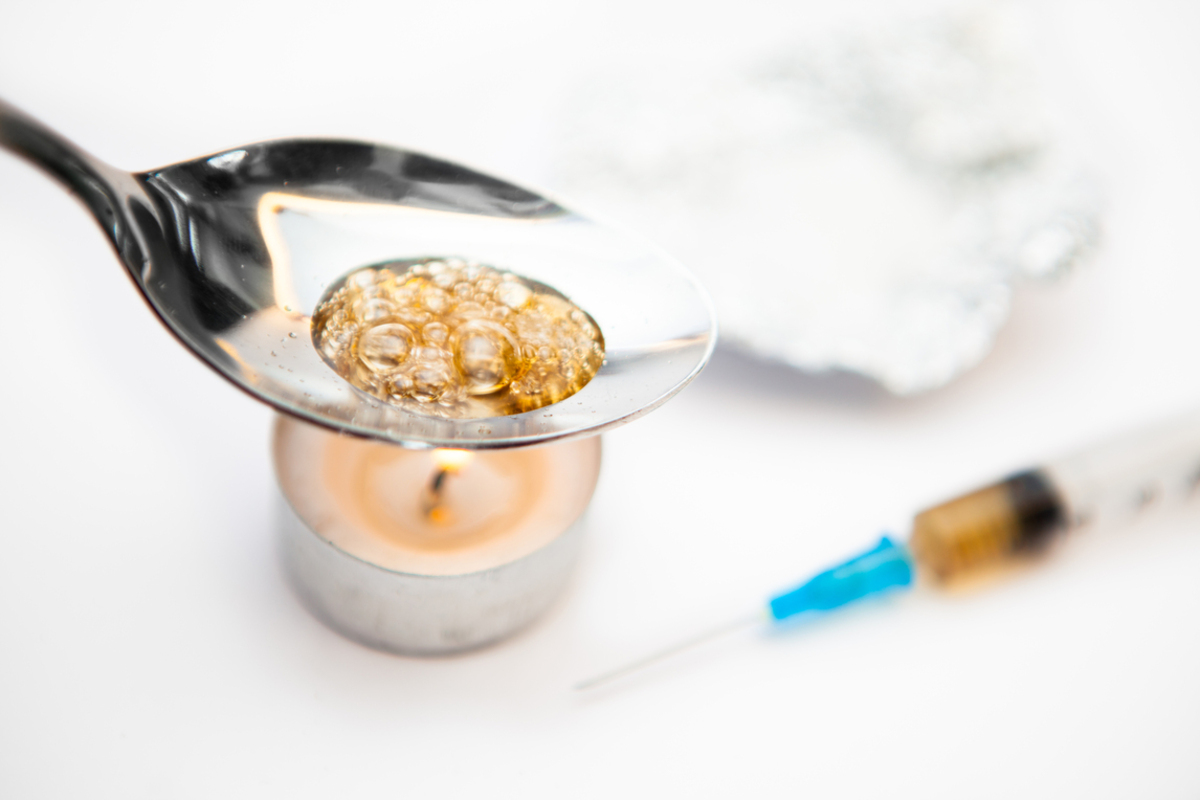Heroin is a highly addictive substance. This pleasure-inducing drug packs lots of power and is classified among the opiate family. It can provide pain relief and produces a relaxing feel. Its interaction with your central nervous system may result in severe long-term damage. Smoking, snorting, sniffing, or injections are common ways to ingest the substance.

How heroin addiction happens
When you ingest heroin, it binds to certain brain receptors. This triggers the release of large amounts of dopamine, the feel-good chemical. As you continue to use heroin, your brain starts to adapt to its effects. Over time, you'll need more and more to function normally, and may fall into addiction. A heroin addict will compulsively use heroin even in the face of severe negative health or social effects.
What are the signs of heroin abuse and addiction?
There are signs of heroin abuse, however, that can help you identify a user and see that they get immediate medical attention. For instance, you may see paraphernalia — like burned spoons, rubber tubes, and syringes that they use to inject heroin into their bodies.
Some tell-tale signs of heroin abuse include:
- Residue in bags as well as on surfaces
- Constricted pupils
- A runny nose
- Envelopes or folder pieces of paper
- Flushed skin
- Vomiting
- Scratching or picking at their skin
- Poor personal hygiene
- Always wearing long-sleeves to conceal needle marks.
Once users ingest heroin, they feel an initial rush before going into a state called a "nod". During the nod, they fall into a semi-conscious state with wakeful periods in between. At other times, they may just go to sleep for a couple of hours. You may also find glass tubes that an addict uses to inhale the drug.
Opioid use disorder may not initially come with any overt symptoms. This is because a user could be trying hard to hide their condition. However, as they continue to use larger amounts, it becomes nearly impossible to hide the condition. Other symptoms of heroin addiction include you might want to look out for are:
- Slurred speech
- Depression
- Impaired memory
- Agitation
- Limited sense of pain
- Sores in the nose for users who snort heroin
- Abdominal issues
- Drowsiness
The side effects of heroin abuse and addiction
Many people claim to be in total control of their heroin use, but this is rarely true — statistics show that there is a high chance of developing heroin dependence. About 23 percent of heroin users develop a dependence on the drug.
The side effects of heroin addiction manifest both in the short and long term. Initially, heroin ingestion produces a sensation surge called "a rush". Next, the skin becomes warm and the mouth goes dry. This initial reaction may sometimes cause the user to vomit while experiencing severe itching. As the short-term effects fade, drowsiness sets in for a couple of hours and basic body functions slow down.
The short-term effects of heroin addiction include:
- Slowed breathing
- Nausea
- Hypothermia
- Coma or death
- Vomiting
- Poor mental functioning
- Drowsiness
- Sedation
In the long-term, the continuous use of heroin produces destructive effects. Frequent injections cause the veins to collapse and can result in blood vessel infection as well as heart valve infection. The poor state of health can also lead to tuberculosis, and some users will develop arthritis.
In the long-term, heroin abuse can produce the following effects:
- Cold sweats
- Abdominal problems
- Impaired sexual capacity
- Difficulty reaching orgasm
- Memory impairment
- Impotence in men
- Facial pustules
- Breathing problems
- Coma
- Bad teeth and gum inflammation
- Itching
- Lack of appetite
- Sleeping problems
- Depression and Introversion
- Menstrual issues
- Weak muscles and partial paralysis
Heroin addiction encourages an addict lifestyle — a situation where needles are shared by a group of heroin users. This may lead to HIV as well as other infections. An estimated 35,000 new cases of hepatitis C2 infections are reported annually in the US, and more than 70 percent involve IV drug users.
- Photo courtesy of SteadyHealth
- www.drugabuse.gov/publications/drugfacts/heroin
- https://www.ncbi.nlm.nih.gov/m/pubmed/22329304/
- https://easyread.drugabuse.gov/content/signs-heroin-use
- https://www.drugabuse.gov/publications/research-reports/heroin/what-are-long-term-effects-heroin-use
- https://www.drugabuse.gov/publications/research-reports/heroin/scope-heroin-use-in-united-states


Your thoughts on this